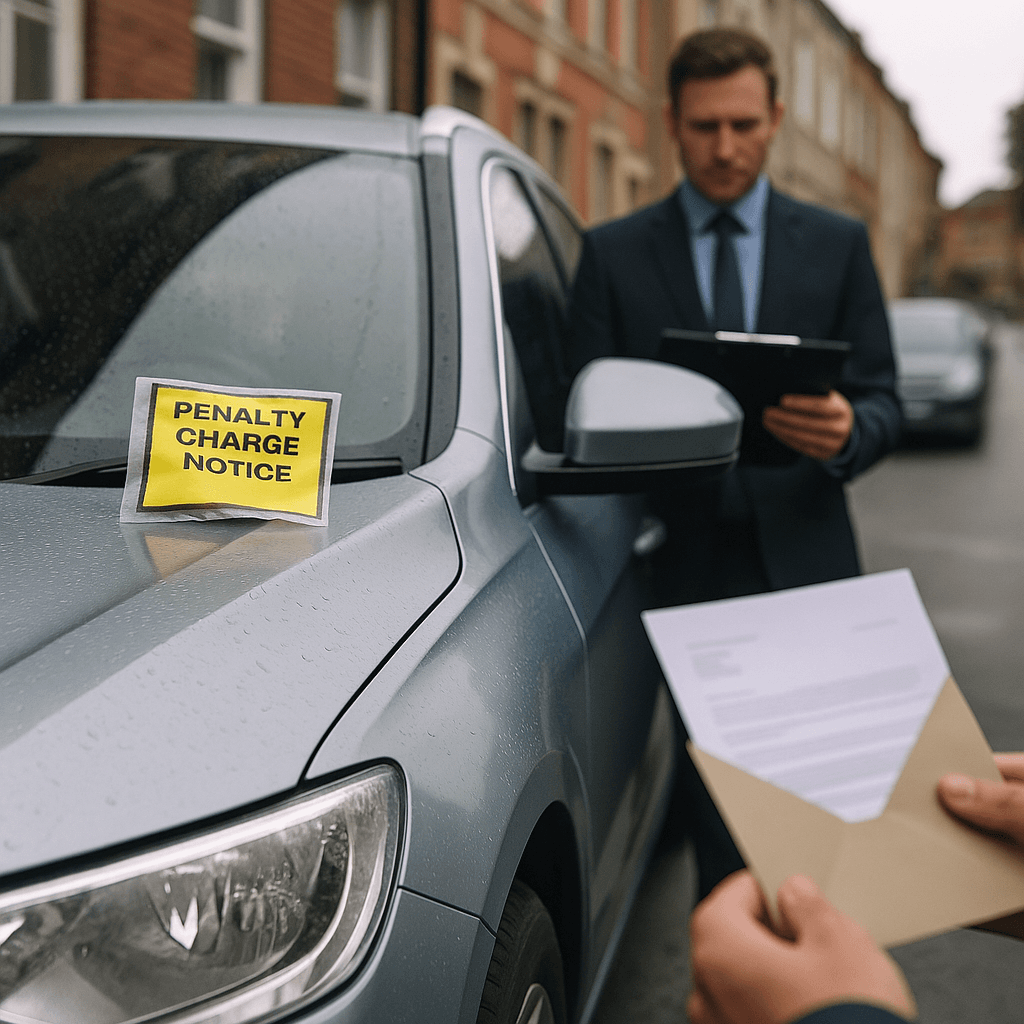
Understanding PCN Code 30: Parked Longer Than Permitted Explained
David Chen
•5 min read
Understanding PCN Code 30: Parked Longer Than Permitted Explained
Imagine this: you're enjoying a leisurely stroll through the town centre, perhaps catching up with friends over a coffee. You return to your car only to find a bright yellow slip tucked under the wiper. Your heart sinks as you realise it's a Penalty Charge Notice (PCN) for Code 30 — "Parked longer than permitted." Don't worry; you're not alone, and we're here to help you navigate this all-too-common scenario.
What is PCN Code 30?
Penalty Charge Notices (PCNs) are issued by local councils across the UK for various parking and traffic contraventions. Code 30 specifically refers to parking in a designated area for longer than the time permitted. This might occur in short-stay car parks, on-street pay-and-display zones, or designated time-limited bays.
Why Does This Happen?
Local councils enforce time restrictions to ensure turnover in high-demand areas, giving everyone a fair chance to park. Unfortunately, it’s easy to lose track of time, especially during a busy day. A PCN Code 30 serves as a reminder to adhere to these restrictions, but it doesn't have to ruin your day.
The PCN Appeal Process in the UK
Receiving a PCN can be frustrating, especially if you believe it was issued unfairly. The good news is you have the right to appeal. Here's a step-by-step guide to the PCN appeal process in the UK:
1. Check the Details
Before you do anything else, verify the information on the PCN:
- Location: Was your car indeed parked where the ticket indicates?
- Time Limit: Double-check the posted time limits against your ticket.
- Evidence: Gather any receipts, photos, or witness statements that support your case.
2. Informal Challenge
Most councils allow an informal challenge, especially if you respond quickly. Here's how:
- Write a Clear Appeal: Explain why you believe the PCN is incorrect. Use any evidence you've gathered to support your case.
- Timely Response: Acting quickly can sometimes result in the council cancelling the PCN without further hassle.
3. Formal Representation
If the informal challenge is rejected, don't fret. You can make a formal representation:
- Notice to Owner (NtO): Wait for the NtO, which allows a formal representation.
- Detailed Explanation: Provide a comprehensive argument, citing any relevant UK laws or council regulations.
- Send Off: Submit your representation within 28 days of receiving the NtO.
4. Appeal to the Traffic Penalty Tribunal
If your formal representation is unsuccessful, you can appeal to the independent Traffic Penalty Tribunal. This is your chance for an impartial review:
- Prepare Your Case: Present all evidence and correspondence with the council.
- Attend a Hearing: You can opt for a telephone, postal, or in-person hearing.
- Patience Pays Off: If the tribunal rules in your favour, the PCN will be cancelled.
UK Parking Regulations: Know Your Rights
Understanding UK parking regulations can help you avoid future PCNs. Here are a few key points to keep in mind:
- Signage: Always check local signage for time limits and parking fees.
- Pay-and-Display Areas: Ensure your ticket is clearly visible on your dashboard.
- Time-Limited Bays: Note the maximum stay and set reminders to return to your vehicle.
Pro Tip:
Use parking apps. Many offer alerts when your time is about to expire, helping you avoid overstaying.
Common Mistakes to Avoid
When dealing with PCNs, there are a few common pitfalls to watch out for:
- Ignoring the Notice: Failing to address a PCN can lead to increased fines and legal action.
- Missed Deadlines: Keep track of all deadlines for challenges and appeals.
- Incomplete Appeals: Provide as much detail and evidence as possible to bolster your case.
Real-Life Scenario: Learning from Others
Consider Sarah, who parked in a two-hour zone while shopping. She underestimated her shopping time and returned 15 minutes late to find a PCN. Instead of ignoring it, Sarah immediately noted the time and location, took photos of the parking signage, and retained her shopping receipts. By submitting an informal challenge with this evidence, the council cancelled her PCN, acknowledging her oversight but valuing her prompt response and comprehensive evidence.
Actionable Next Steps
Dealing with a PCN doesn’t have to be a headache. Here's what you can do right now:
- Stay Informed: Familiarise yourself with local parking regulations.
- Be Proactive: Use technology to track parking limits and set reminders.
- Document Everything: Keep records of your parking activities and any PCNs received.
- Engage Promptly: Respond quickly to any parking fines to preserve your rights to challenge.
Remember, a PCN is not the end of the world. By understanding the process and your rights, you can effectively manage and potentially overturn unfair penalties. Stay informed, stay vigilant, and happy parking!